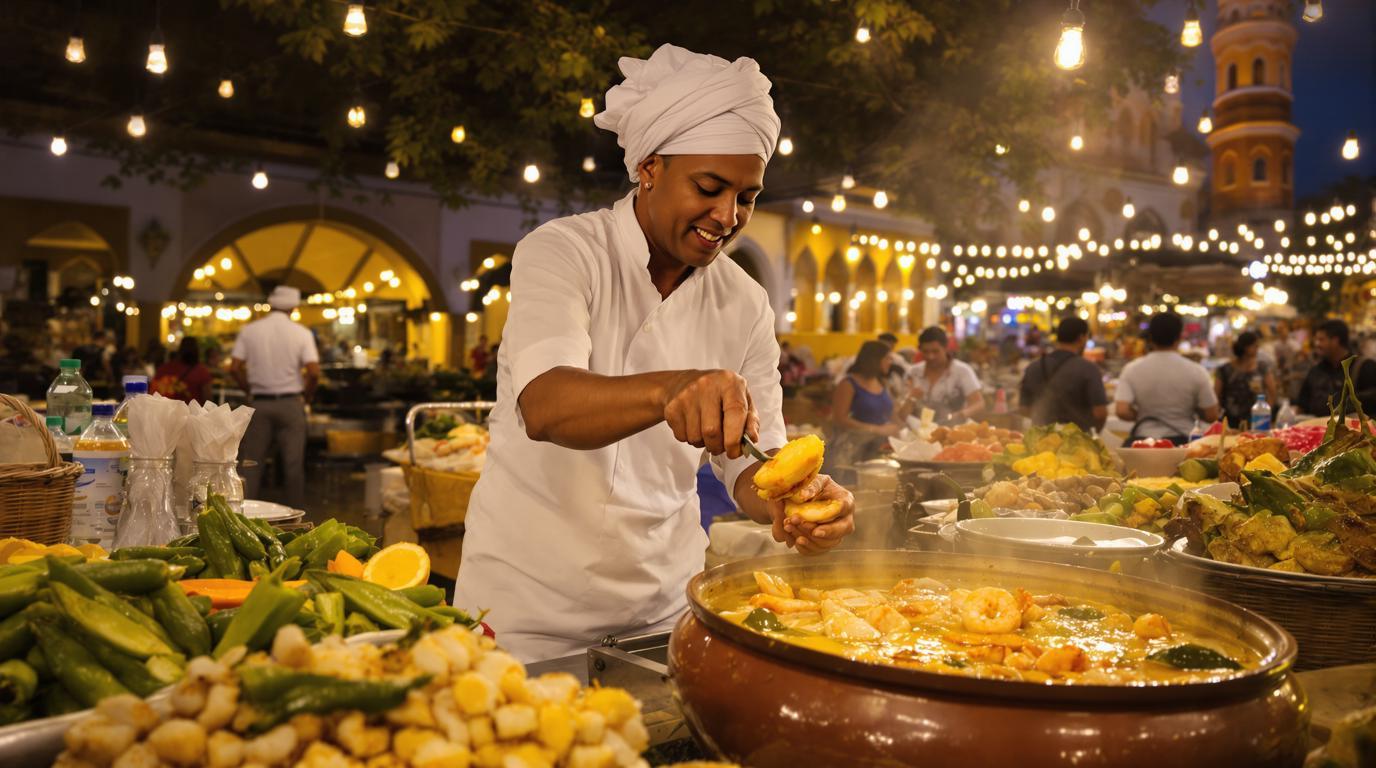Salvador, Brazil’s first capital, pulses with a culinary energy that rivals many Michelin-recognized cities worldwide. Though the prestigious red guide hasn’t officially landed in Bahia’s vibrant metropolis, the city’s explosive flavors and innovative kitchens showcase dining experiences worthy of international acclaim. For travelers seeking authentic Brazilian gastronomy beyond the well-trodden paths of Rio and São Paulo, Salvador offers a tantalizing alternative.
Where African traditions meet Portuguese technique
Salvador’s cuisine stands as a living museum of cultural fusion. African culinary traditions, brought by enslaved peoples centuries ago, merged with Portuguese colonial techniques to create Bahia’s distinctive flavor profile. The liberal use of dendê (palm oil), coconut milk, and fiery malagueta peppers creates bold, unforgettable dishes that tell the story of Brazil’s complex heritage.
Origem: Salvador’s culinary crown jewel
If Michelin inspectors were to visit Salvador today, Origem would likely earn their first star. Helmed by chef-couple Fabrício Lemos and Lisiane Arouca, this intimate restaurant crafts contemporary tasting menus celebrating Bahian ingredients with technical brilliance. Their reinvented moqueca (traditional seafood stew) exemplifies how Salvador’s chefs honor tradition while pushing culinary boundaries.
“In Salvador, we don’t just cook food – we preserve centuries of cultural memory through flavor,” explains Chef Lemos. “Every dish tells a story of resilience and celebration.”
Beyond the stars: Salvador’s culinary constellation
Like certain African cities with outstanding restaurants but no Michelin recognition, Salvador’s food scene thrives without official stars. Amado restaurant delivers stunning All Saints Bay views alongside elegant dishes like crispy shrimp with green apple risotto. Meanwhile, Carvão specializes in fire-cooking techniques that would impress even the most discerning global food critics.
Street food that deserves a culinary pilgrimage
Salvador’s most authentic flavors often come from street vendors and modest eateries. The city’s iconic street food, acarajé – deep-fried black-eyed pea fritters split and filled with vatapá (spicy shrimp paste) – represents a culinary tradition maintained by Baianas in traditional white dresses and turbans. These women are living cultural treasures who preserve recipes passed through generations.
A sensory feast beyond taste
Dining in Salvador engages all senses. The rhythmic beats of Afro-Brazilian music often accompany meals, especially in the historic Pelourinho district. Like Rio’s iconic Christ statue, Salvador’s São Francisco Church dazzles visitors with its ornate golden interior, providing a feast for the eyes before culinary adventures begin.
The moqueca showdown
Local chefs debate fiercely about proper moqueca preparation. Salvador’s version, cooked with fiery dendê oil and coconut milk, differs dramatically from the lighter tomato-based version found in Espírito Santo state. Restaurante Dona Mariquita serves one of the city’s most acclaimed versions, with seafood so fresh it was likely swimming hours before reaching your plate.
“Our moqueca recipe has remained unchanged for three generations,” says Dona Mariquita’s owner. “We could modernize it, but why improve on perfection?”
When to experience Salvador’s gastronomic magic
Like Europe’s hidden culinary capitals, Salvador shines year-round, though February’s Carnival brings the most vibrant energy. The pre-Lenten celebration transforms the city into a non-stop party where street food vendors work around the clock to feed revelers.
Where to stay for food lovers
The charming neighborhood of Rio Vermelho offers the perfect base for culinary explorers. This bohemian district houses many of Salvador’s best restaurants and the famous Largo de Santana, where evening food stalls serve acarajé and other local specialties until late night. Villa Bahia, a boutique hotel in the historic center, arranges cooking classes and market tours for guests.
Salvador’s sweet side
No culinary journey through Salvador is complete without sampling its sweet treasures. Quindim, a glistening yellow custard made with egg yolks, sugar and ground coconut, showcases Portuguese colonial influence. Meanwhile, cocadas (coconut sweets) reveal the city’s ability to transform simple ingredients into extraordinary confections with African techniques.
Salvador may lack Michelin stars like certain harbor cities with Japanese-Italian fusion, but its authentic flavors and vibrant culinary traditions offer something far more valuable – a genuine taste of Brazil’s soul. From street food to contemporary restaurants, Salvador delivers edible poetry that tells the story of a nation through every unforgettable bite.
